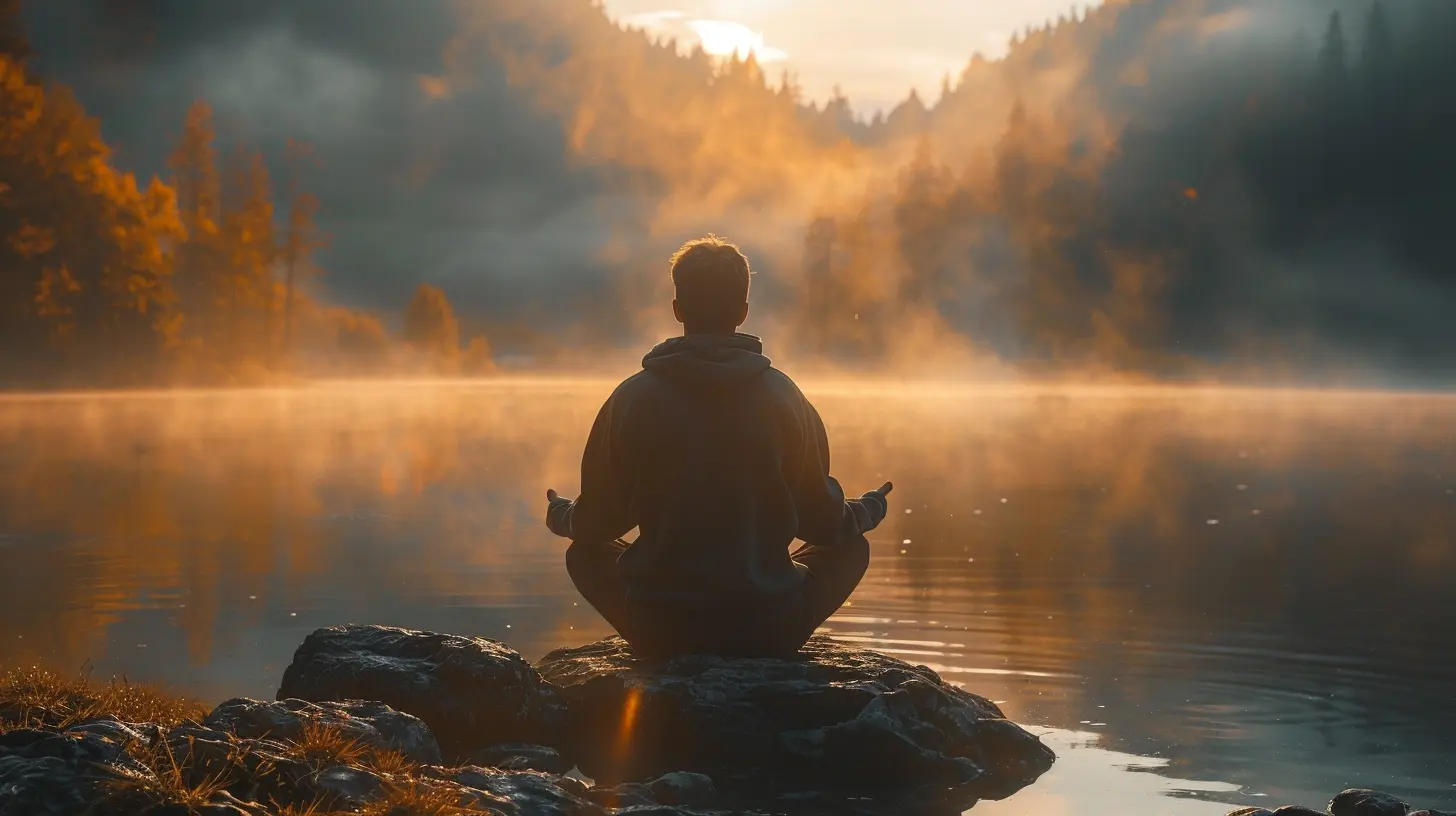Meditation for Decision Making: Clarity in the Midst of Uncertainty
17 August 2025
Making decisions—big or small—can be overwhelming. Whether it’s choosing a career path, deciding on a relationship, or even picking what to eat for dinner, our minds often spiral into overthinking. But what if there was a way to cut through the mental noise and find clarity?
Meditation offers just that. It's not just for monks sitting cross-legged on a mountain; it's a practical tool that helps bring awareness, calmness, and focus—key elements in making better decisions.
In this article, we’ll explore how meditation can help you navigate uncertainty, sharpen your judgment, and make choices with confidence.

Why Decision-Making Feels Overwhelming
Ever felt paralyzed by too many choices? That’s called decision fatigue—when the brain gets exhausted from making too many decisions. When this happens, we default to impulsive choices or avoid decisions altogether.Uncertainty makes it even worse. The fear of making the "wrong" choice leads us into analysis paralysis, where we overthink things to the point of inaction.
Meditation helps by quieting the mental chatter and allowing us to trust our intuition. It strengthens the mind’s ability to focus on what truly matters rather than getting lost in indecision.

How Meditation Improves Decision-Making
1. Reduces Overthinking and Emotional Reactivity
One of the biggest roadblocks to clear decision-making is overthinking. When faced with a tough choice, our mind plays out endless "what if" scenarios. This constant mental back-and-forth is exhausting.Meditation quiets this noise. By focusing on the present, it trains your brain to stop obsessing over hypothetical outcomes and instead trust in the process.
Additionally, meditation reduces emotional reactivity. When you’re stressed or anxious, you’re more likely to make impulsive decisions that you might later regret. Meditation helps regulate emotions, ensuring that your decisions come from a place of clarity rather than fear.
2. Strengthens Intuition
Ever had a gut feeling about something? That’s intuition at work. Your subconscious mind picks up on patterns and details that your conscious mind often overlooks.Meditation enhances intuition by clearing away distractions, allowing you to tune into your inner wisdom. Instead of second-guessing yourself, you start making choices that feel aligned with your values and goals.
3. Improves Focus and Mental Clarity
A cluttered mind is like a messy room—you can’t find anything when you need it. Meditation acts like mental decluttering, helping you focus on what’s truly important.When your mind is clear, decisions become more straightforward. You can assess options logically without getting lost in unnecessary details.
4. Enhances Self-Awareness
Many bad decisions come from not knowing ourselves well enough. We might choose things based on societal expectations, peer pressure, or old habits rather than what truly resonates with us.Meditation fosters self-awareness. When you regularly tune into your thoughts and emotions, you gain a deeper understanding of what drives your choices. This makes it easier to align decisions with your authentic self.
5. Helps Manage Uncertainty with Acceptance
Life is unpredictable. No matter how much planning we do, uncertainty is inevitable. Meditation teaches acceptance—the ability to sit with uncertainty without letting it consume us.Rather than fearing the unknown, meditation helps us embrace it as part of life’s natural flow. This shift in mindset makes decision-making less stressful because we stop clinging to the illusion of absolute certainty.

Meditation Practices for Better Decision-Making
You don’t need to meditate for hours to see results. Even a few minutes a day can make a significant difference. Here are some meditation techniques specifically beneficial for decision-making:1. Mindfulness Meditation
How it helps: Strengthens focus, reduces stress, and increases self-awareness.How to do it:
- Find a quiet place and sit comfortably.
- Focus on your breath. Feel the air entering and leaving your nostrils.
- When thoughts arise (and they will), simply notice them without judgment and bring your focus back to your breath.
- Do this for 5-10 minutes daily.
Over time, this practice makes you more aware of your thoughts, helping you recognize patterns that might be influencing your decisions.
2. Visualization Meditation
How it helps: Provides mental clarity by mentally rehearsing possible outcomes.How to do it:
- Close your eyes and visualize the different choices you are considering.
- Picture each scenario playing out. How does it feel? What emotions come up?
- Observe without attachment, and see which option resonates most with you.
Visualization helps you connect with your intuition and gain insight into what feels right.
3. Body Scan Meditation
How it helps: Enhances emotional awareness, ensuring you’re not making decisions based on stress or tension.How to do it:
- Sit or lie down in a quiet space.
- Begin by focusing on your toes and slowly move your attention up to the top of your head.
- Notice any tension or discomfort in your body.
- Breathe into tense areas and allow relaxation.
This practice helps you tune into physical sensations, which often hold emotional clues about the choices you’re facing.
4. Loving-Kindness Meditation (Metta)
How it helps: Reduces fear-based decision-making by fostering compassion and openness.How to do it:
- Close your eyes and take deep breaths.
- Silently repeat phrases like: May I be happy. May I be at peace. May I make wise decisions.
- Extend these wishes to others, including those involved in your decision-making process.
This meditation shifts your mindset from fear to compassion, promoting calmer and more thoughtful decision-making.

Making Meditation a Daily Habit
If you’re new to meditation, consistency is key. Here’s how to make it a habit:- Start small – Just 5 minutes a day can make a difference.
- Pair it with an existing habit – Meditate after brushing your teeth, before bed, or during lunch breaks.
- Use guided meditations – Apps like Headspace, Calm, or Insight Timer offer great resources.
- Be patient – Meditation isn’t about "emptying" your mind. It’s about noticing your thoughts without getting caught up in them.
Final Thoughts
Decisions shape our lives, and meditation helps us make them wisely, calmly, and confidently. By reducing mental clutter, strengthening intuition, and fostering self-awareness, meditation becomes a powerful tool for navigating uncertainty.So, the next time you're faced with a tough choice, take a deep breath, sit in stillness, and trust that the answers will come. Clarity isn’t something you force—it’s something you allow.
all images in this post were generated using AI tools
Category:
MeditationAuthor:

Ember Forbes
Discussion
rate this article
1 comments
Vito Stone
This article compellingly highlights meditation's role in enhancing decision-making amidst uncertainty. By promoting mindfulness, it fosters clarity and emotional regulation, empowering individuals to make informed choices while navigating complex and often overwhelming situations. An insightful read!
September 21, 2025 at 4:43 AM

Ember Forbes
Thank you for your thoughtful feedback! I'm glad you found the article insightful and compelling.


